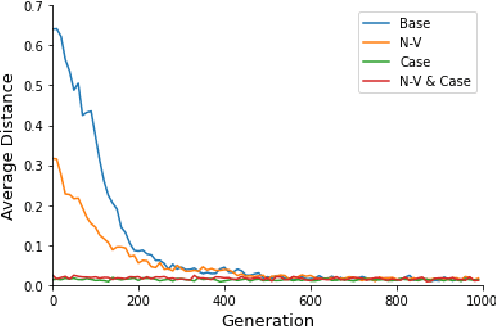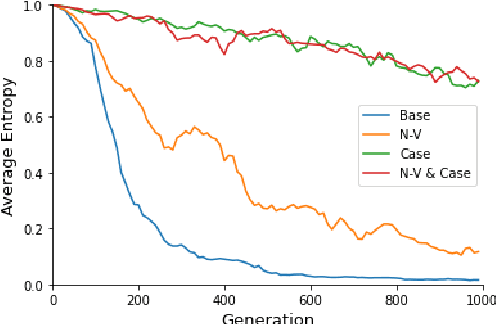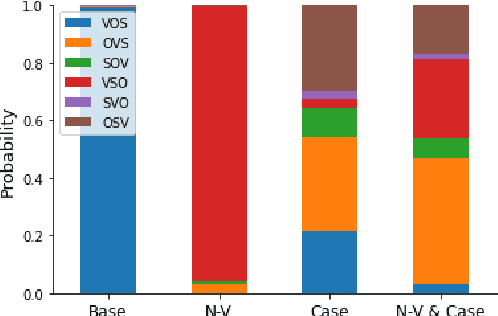On the Evolution of Word Order
Paper and Code
Jan 23, 2021


Most natural languages have a predominant or fixed word order. For example, in English, the word order used most often is Subject-Verb-Object. This work attempts to explain this phenomena as well as other typological findings regarding word order from a functional perspective. That is, we target the question of whether fixed word order gives a functional advantage, that may explain why these languages are common. To this end, we consider an evolutionary model of language and show, both theoretically and using a genetic algorithm-based simulation, that an optimal language is one with fixed word order. We also show that adding information to the sentence, such as case markers and noun-verb distinction, reduces the need for fixed word order, in accordance with the typological findings.
 Add to Chrome
Add to Chrome Add to Firefox
Add to Firefox Add to Edge
Add to Edge